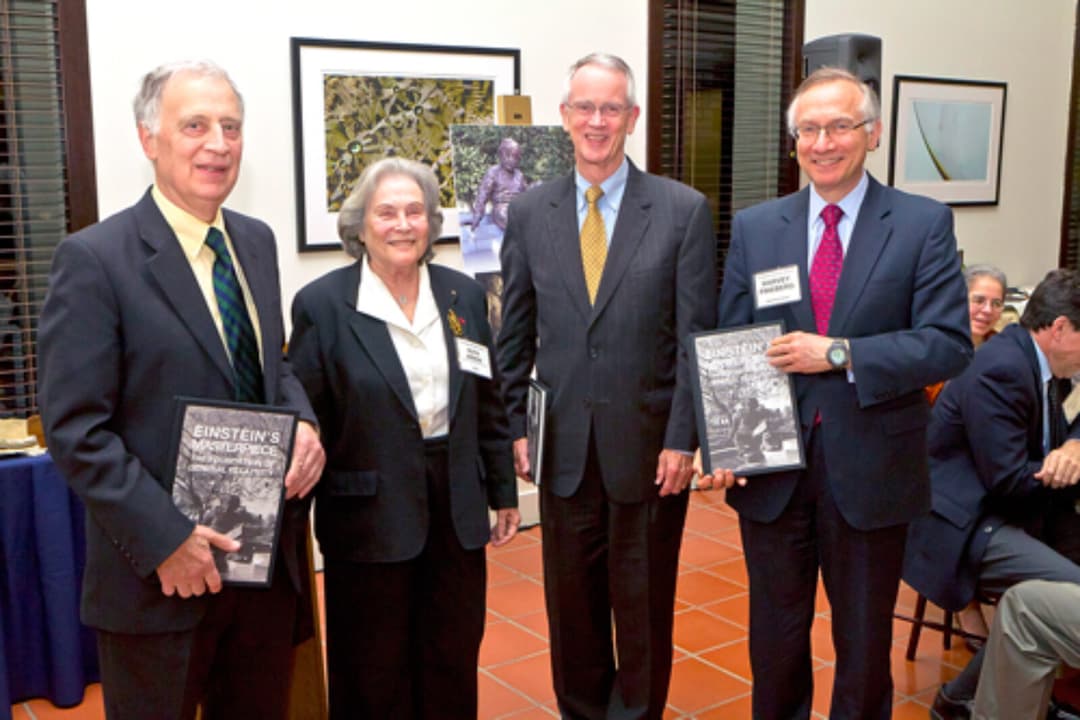National Academy of Sciences' Kavli Frontiers of Science Begins New Symposium Series with Israel

(Originally published by the National Academy of Sciences)
February 10, 2012
The National Academy of Sciences' Kavli Frontiers of Science symposium program has entered into a new partnership with Israel. This new collaboration was initiated this year following a visit to the U.S. National Academy of Sciences (NAS) by Ruth Arnon, president of the Israel Academy of Sciences and Humanities (IASH), to strengthen scientific and technological collaboration between American and Israeli researchers. The new symposium series is co-organized by the two academies and is supported by funds from the Kavli Foundation, NAS, and IASH.

"Scientific research is expanding across multiple disciplines, and collaborations are crossing national boundaries," said NAS President Ralph J. Cicerone. "The Kavli Frontiers of Science symposia provide opportunities for young scientists from many fields to learn about one another's work, and we are excited by the creation of new international networks and the potential for interdisciplinary partnerships that the Israeli-American program will bring."
“Scientific collaborations between Israeli and American scientists have been strong ever since the establishment of the state of Israel,” Arnon said. “The Kavli Frontiers of Science symposia will offer an important additional aspect – interaction and possible collaboration between excellent young scientists from different disciplines of the two countries – thus enriching the scientific relations.”
The symposia series are designed for outstanding early career scientists — typically less than 45 years of age — to share ideas across disciplines and to build national and international networks that will serve them as they advance in their careers. Unlike a discipline-specific scientific meeting, Kavli Frontiers of Science symposia provide many opportunities to explore ideas and techniques from a variety of disparate fields. The first symposium took place in 1989; the joint program with Israel is the latest in a set of bilateral symposia that have connected young U.S. scientists with their counterparts in China, England, France, Germany, India, Indonesia, and Japan. More than 4,500 researchers have attended a Kavli Frontiers of Science symposium. Among these alumni, 136 have been elected to the NAS and 10 have received the Nobel Prize.
The U.S.-Israel symposia will take place biennially, alternating between the U.S. and Israel, and will be attended by approximately 70 distinguished young researchers representing universities, government laboratories, and private industry. Participants will be selected by NAS and IASH from among leading young researchers in the U.S. and Israel. The first symposium is expected to take place in 2013 at the Arnold and Mabel Beckman Center in Irvine, California.
The National Academy of Sciences is a private organization of scientists and engineers dedicated to the furtherance of science and its use for the general welfare. The academy was established in 1863 by a congressional act of incorporation signed by Abraham Lincoln that calls on the Academy to act as an official adviser to the federal government, upon request, in any matter of science or technology.
The Israel Academy of Sciences and Humanities was chartered in 1961 and acts as a national focal point for Israeli scholarship in both the natural sciences and the humanities. It consists of approximately 100 of Israel's most distinguished scientists and scholars. The academy acts as an official adviser to the government of Israel on matters related to science and technology, and one of its major functions is to promote the relations with academies of science worldwide. IASH perceives the new collaboration with the NAS and the Kavli Frontiers of Science as a high point in its activities.
The Kavli Foundation was established in December 2000 by its founder and benefactor, Fred Kavli. Based in Oxnard, California, the foundation is dedicated to the advancement of science for the benefit of humanity, the promotion of increased public understanding of science, and the support for scientists and their work. The Kavli Foundation's mission is implemented through an international program of research institutes, professorships, symposia, and prizes.